Home > Workshop and Training > IN JAPAN > Fiscal Year 2011 > FY2011 JICA Training Course Starts on “Waste Management (A) for Promoting Recycling-Oriented Societies in Central and South America” > FY2011 JICA Training Course Closes on “Waste Management (A) for Promoting Recycling-Oriented Societies in Central and South America”
Main content starts here.
Update:August 11, 2011
FY2011 JICA Training Course Closes on “Waste Management (A) for Promoting Recycling-Oriented Societies in Central and South America”
A JICA-commissioned training course on “Waste Management (A) for Promoting Recycling-Oriented Societies in Central and South America” was held from June 6 to July 15. The 40-day course ended with a closing ceremony.
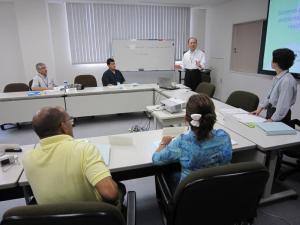 The course was taken by seven central and local government officials from four countries: Bolivia, Colombia, the Dominican Republic, and El Salvador. These participants attended lectures and visited environment-related facilities to learn about the Japanese waste management system, methods to promote the 3Rs of Reduce, Reuse and Recycle, technologies to implement the 3Rs, and activities to promote awareness of the environment. Their positive attitudes resulted in them asking many questions at the lectures and the sites they visited, and discussing with each other and the lecturers how the knowledge and skills acquired in the training could be put to use in their countries.
The course was taken by seven central and local government officials from four countries: Bolivia, Colombia, the Dominican Republic, and El Salvador. These participants attended lectures and visited environment-related facilities to learn about the Japanese waste management system, methods to promote the 3Rs of Reduce, Reuse and Recycle, technologies to implement the 3Rs, and activities to promote awareness of the environment. Their positive attitudes resulted in them asking many questions at the lectures and the sites they visited, and discussing with each other and the lecturers how the knowledge and skills acquired in the training could be put to use in their countries.
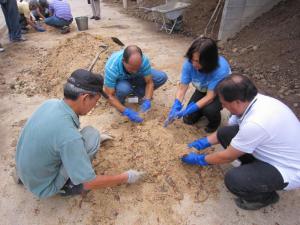
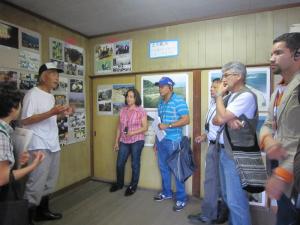
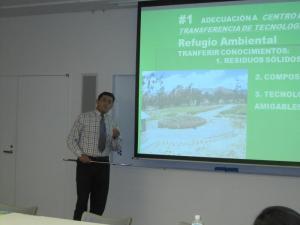
At the end of the course, the participants made presentations of the action plans they would bring into practice in their own countries. The plans were to adopt time-and-motion studies to improve the efficiency of garbage collection, promote the composting of organic materials at markets, revise laws and carry out educational activities to promote the sorting of waste at its sources, and establish facilities to learn about the environment at sanitary landfill sites. These also included concrete schedules, necessary funds, and human resources. Following their own plans, the participants are highly expected to help solve what they regard as the problems affecting their countries and take the first step on the road to the formation of recycling-oriented societies in their countries.
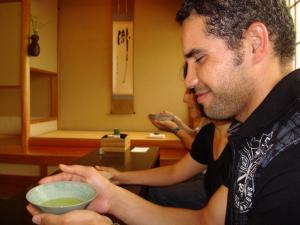 On weekends, the participants enjoyed trips to Hiroshima and Kyoto and the tea ceremony in Yokkaichi. On July 7, they celebrated the Festival of the Weaver in Japanese yukatas - informal cotton kimonos worn in summer, writing their wishes on strips of fancy paper, called “tanzaku”, and hanging them on bamboo branches. Through this exposure to some aspects of Japanese culture they appeared to have made more pleasant memories than they had perhaps expected before their arrival in Japan.
On weekends, the participants enjoyed trips to Hiroshima and Kyoto and the tea ceremony in Yokkaichi. On July 7, they celebrated the Festival of the Weaver in Japanese yukatas - informal cotton kimonos worn in summer, writing their wishes on strips of fancy paper, called “tanzaku”, and hanging them on bamboo branches. Through this exposure to some aspects of Japanese culture they appeared to have made more pleasant memories than they had perhaps expected before their arrival in Japan.
We would like to express our gratitude to the lecturers and others involved in the course for the cordial support and cooperation. (Oya)







